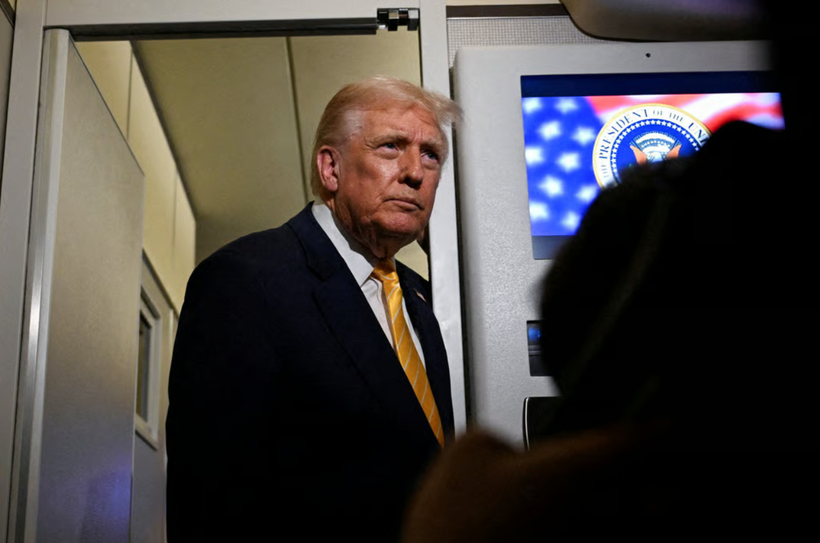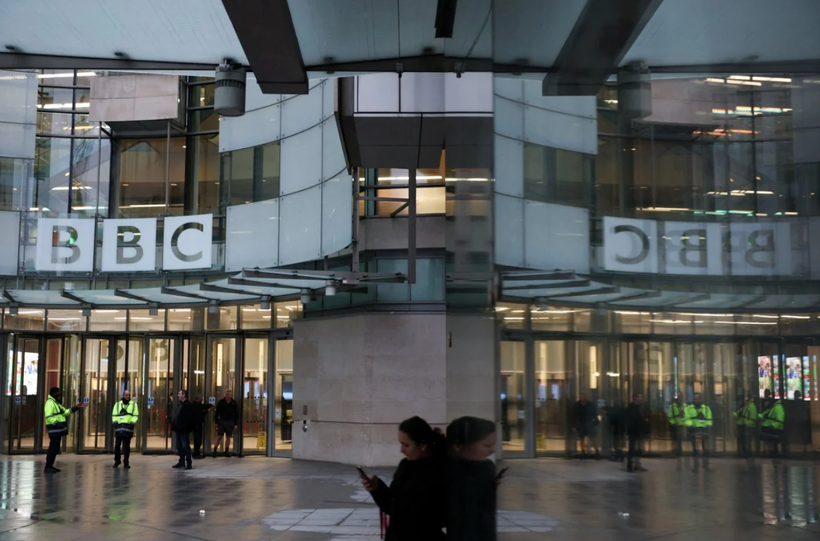In a dramatic escalation of an already-brewing media firestorm, U.S. President Donald Trump announced on 14 November that he is preparing to sue the BBC for between $1 billion and $5 billion, accusing the British broadcaster of deliberately manipulating his words in a documentary segment about his 6 January 2021 speech.
Speaking to reporters aboard Air Force One as he flew to Florida, Trump blasted the BBC for what he described as an act of “fraud,” insisting the network had altered, rearranged, and misrepresented parts of his address during the events surrounding the Capitol riot. The BBC has acknowledged making editorial “errors in judgment,” but firmly denies any defamation, maintaining that the mistakes were unintentional.
The controversy has rocked the BBC at a moment of institutional turmoil. The broadcaster is grappling with one of the most serious crises in its modern history, with two senior executives resigning in recent days over allegations of political bias and improper editing practices. Among those incidents is the handling of Trump’s 6 January speech — an issue now at the centre of international political and media scrutiny.
A Threat Measured in Billions
Trump’s legal team previously gave the BBC a Friday deadline to retract the documentary episode or face a lawsuit valued at “not less than $1 billion.” They also demanded a formal apology and financial compensation for what they called “severe reputational and financial damage.”
Although the BBC privately apologised to Trump last week, it refused to withdraw the documentary and has rejected all claims of defamation. That position appears to have pushed Trump toward litigation.
“We’re going to sue them for anywhere between $1 billion and $5 billion — probably next week,” Trump told journalists. “They admitted wrongdoing. They changed the words that came out of my mouth.”
Trump said he had not yet spoken to British Prime Minister Keir Starmer about the controversy but planned to contact him soon. According to Trump, Starmer has already attempted to reach out and is “embarrassed” by the affair.
The Documentary at the Center of the Storm
The disputed footage aired on Panorama, the BBC’s flagship investigative program. The segment stitched together three different moments from Trump’s 6 January speech in a way that, according to Trump’s lawyers, suggested he was directly inciting the crowd that later stormed the U.S. Capitol.
In a separate interview with the conservative channel GB News, Trump described the edit as “unbelievable,” likening it to election interference.
“I gave a very beautiful speech, and they turned it into something ugly,” he said. “‘Fake news’ used to be a strong term, but it’s not strong enough anymore. This is beyond fake — it’s rot.”
For Trump, the BBC’s apology falls far short.
“They say it was unintentional, but if it was unintentional, you wouldn’t need to apologise,” he argued. “They spliced together two parts of the speech that were nearly an hour apart. It’s incredible they portrayed me as delivering some aggressive call that led to violence.”
BBC Leadership Under Pressure
BBC Chairman Samir Shah sent a personal apology to the White House and called the editing error “a lapse in judgment.” UK Culture Secretary Lisa Nandy said the apology was “right and necessary.”
The broadcaster has suspended plans to re-air the documentary and launched a broader investigation into additional alleged editing inaccuracies, including issues flagged within its Newsnight programme.
The fallout has been severe: the Director-General and the head of BBC News resigned last week following mounting accusations of political bias and improper editorial conduct.
Prime Minister Starmer addressed Parliament on Wednesday, voicing support for a “strong and independent BBC,” but warning that the broadcaster must “get its house in order.”
“There are those who would like the BBC not to exist,” Starmer said, gesturing toward Conservative MPs. “I am not one of them. In an era of rampant misinformation, the case for an impartial British news service is stronger than ever.”
Who Pays If Trump Wins?
A major question now hangs over the BBC: if Trump sues — and wins — who foots the bill?
Because the BBC is largely funded through compulsory licence fees, former Culture Secretary John Whittingdale warned that the public would be outraged if taxpayer money were used to compensate Trump.
With tensions rising on both sides of the Atlantic, the stakes — financial, political, and institutional — could not be higher. The coming weeks may determine not only the fate of a lawsuit, but the credibility and future direction of one of the world’s most influential broadcasters.
Leave a Reply